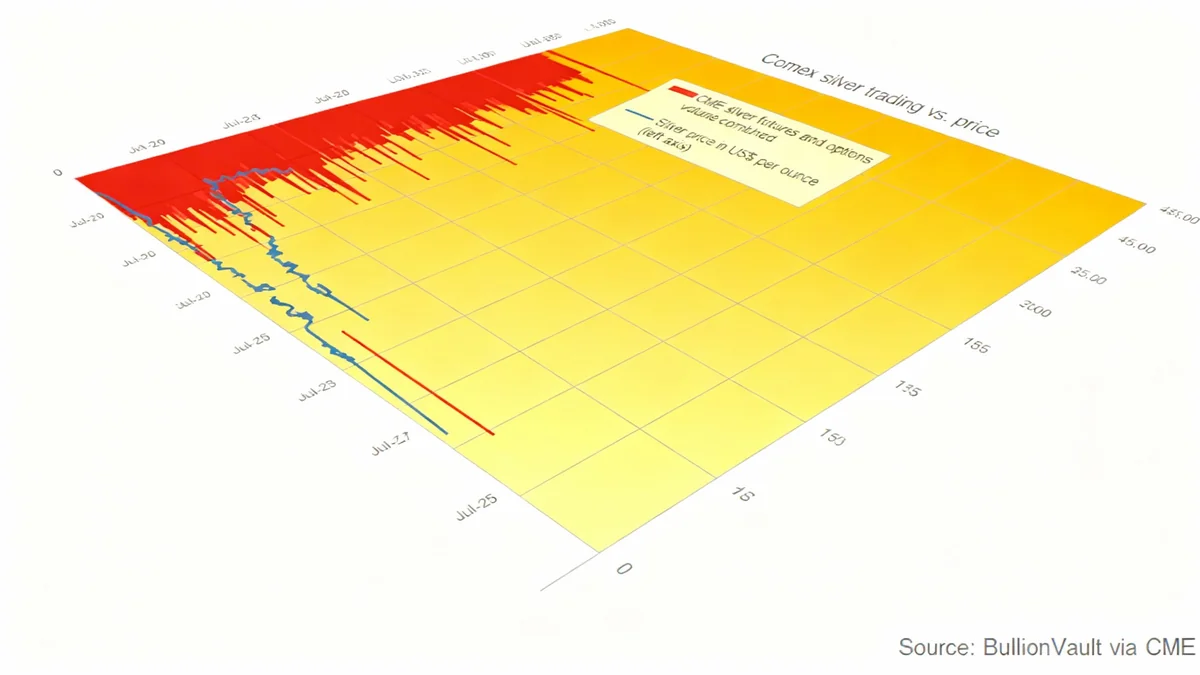Investors seeking exposure to the technology sector often consider two prominent exchange-traded funds (ETFs): the Invesco QQQ Trust (QQQ) and the Vanguard Information Technology ETF (VGT). While both provide access to top tech companies, they differ significantly in their underlying index, concentration, and diversification, presenting a key choice for portfolio construction.
Key Takeaways
- Different Strategies: QQQ tracks the Nasdaq-100 index, which includes the 100 largest non-financial companies, while VGT specifically targets the information technology sector.
- Performance History: Over the past decade, VGT has delivered higher returns than QQQ, posting a total return of 616% compared to QQQ's 468%.
- Concentration Risk: VGT has a much higher concentration in its top holdings, with nearly half of its assets in just four companies, making it potentially riskier than the more broadly diversified QQQ.
- Cost Factor: VGT offers a lower expense ratio of 0.09%, compared to 0.2% for QQQ, which can impact long-term returns.
Understanding the Core Focus of Each ETF
Choosing between QQQ and VGT begins with understanding what each fund is designed to do. Their investment strategies, while overlapping, serve different purposes for an investor's portfolio.
Invesco QQQ Trust (QQQ)
The Invesco QQQ Trust is one of the most widely traded ETFs in the world. It does not track the entire Nasdaq Composite but instead mirrors the Nasdaq-100 Index. This index is composed of the 100 largest non-financial companies listed on the Nasdaq stock exchange.
Although heavily weighted toward technology, which constitutes over 60% of the fund, QQQ is not a pure-tech ETF. Its holdings also include prominent companies in sectors like communication services, consumer discretionary, and healthcare. This structure provides a degree of diversification beyond a single industry.
Vanguard Information Technology ETF (VGT)
In contrast, the Vanguard Information Technology ETF is a sector-specific fund. It aims to track the performance of the MSCI US Investable Market Information Technology 25/50 Index. This makes VGT a pure-play technology ETF.
The fund includes a broad range of 314 companies exclusively from the information technology sector. While it is dominated by large-cap tech giants, it also provides exposure to mid-cap and small-cap tech firms, offering a comprehensive snapshot of the entire U.S. tech industry.
What Is an ETF?
An Exchange-Traded Fund (ETF) is a type of investment fund that is traded on stock exchanges, much like stocks. An ETF holds assets such as stocks, commodities, or bonds and generally operates with an arbitrage mechanism designed to keep it trading close to its net asset value, although deviations can occasionally occur.
A Closer Look at Top Holdings and Concentration
Both ETFs are market-cap weighted, meaning the largest companies have the biggest impact on their performance. This has led to a significant overlap in their top holdings, but the allocation percentages reveal a critical difference in strategy and risk.
The top four holdings in both funds are Nvidia, Microsoft, Apple, and Broadcom. However, their weight in each ETF varies substantially.
- In VGT, these four companies account for approximately 48% of the entire fund.
- In QQQ, the same four companies represent about 32% of the fund.
Here is a breakdown of the approximate weighting for these key companies in each ETF:
- Nvidia: 17.2% in VGT vs. 9.6% in QQQ
- Microsoft: 13.4% in VGT vs. 8.3% in QQQ
- Apple: 13.1% in VGT vs. 8.0% in QQQ
- Broadcom: 4.5% in VGT vs. 5.9% in QQQ
Data is based on holdings reported as of late September and early October.
The heavy concentration in VGT means its performance is highly dependent on a small number of mega-cap tech stocks. A significant downturn in any of these top holdings would have a much larger negative impact on VGT compared to QQQ.
Performance and Cost Analysis Over the Last Decade
Historical performance is a key metric for many investors, and in this regard, VGT has had a clear edge over the past ten years. Driven by the explosive growth of its top holdings, VGT's returns have outpaced QQQ's.
Over the last decade, VGT has generated a total return of 616%, which translates to an average annual return of about 21.8%. During the same period, QQQ delivered a total return of 468%, for an average annual return of 19%.
Much of VGT's recent outperformance can be attributed to the phenomenal rise of Nvidia, which holds a much larger weight in VGT than in QQQ.
The Impact of Fees
Another important consideration is the expense ratio, which is the annual fee charged by the fund. Lower fees can lead to significantly higher returns over the long term.
VGT is the more cost-effective option, with an expense ratio of just 0.09%. QQQ's expense ratio is more than double that, at 0.20%. While a 0.11% difference may seem small, it compounds over time. For example, on a $500 monthly investment averaging 10% annual returns, an investor would pay over $4,200 more in fees over 20 years with QQQ compared to VGT.
Risk vs. Reward: The Diversification Argument
The choice between QQQ and VGT ultimately comes down to an investor's risk tolerance and investment thesis. The core debate centers on concentration versus diversification.
VGT's heavy concentration in a few top-performing stocks has been a major advantage, driving its superior returns. However, this same factor is its greatest risk. The old saying, "what goes up can also come down," applies here. If the mega-cap tech leaders experience a significant pullback due to high valuations or market shifts, VGT would be disproportionately affected.
"Concentration is a double-edged sword. It has fueled VGT's incredible growth, but it also exposes investors to significant single-stock and sector-specific risk. QQQ, while still tech-focused, offers a cushion with its non-tech holdings that can provide stability during periods of tech sector volatility."
QQQ, while less of a pure-play, offers a built-in buffer. Because it includes large companies from other sectors, it can help mitigate losses if the technology industry goes through a difficult period. Its performance is not solely reliant on the fortunes of a few tech giants.
Which ETF Is Right for Your Portfolio?
Neither ETF is definitively "better"; they simply serve different objectives. The right choice depends on your individual financial goals and how much risk you are willing to take.
Consider VGT if:
- You want pure, undiluted exposure to the U.S. information technology sector.
- You have a high-risk tolerance and believe the top tech companies will continue to outperform the broader market.
- You are looking for the lowest possible fees for direct tech exposure.
Consider QQQ if:
- You want significant exposure to technology but with the added diversification of other growth sectors.
- You are a long-term investor who prefers a more balanced approach to reduce volatility.
- You want to invest in the Nasdaq's largest innovators without being entirely dependent on the tech sector alone.
For many long-term investors, the slightly broader diversification of QQQ may offer a more prudent path. It captures much of the tech sector's upside while providing a safety net that VGT's highly concentrated structure lacks.





